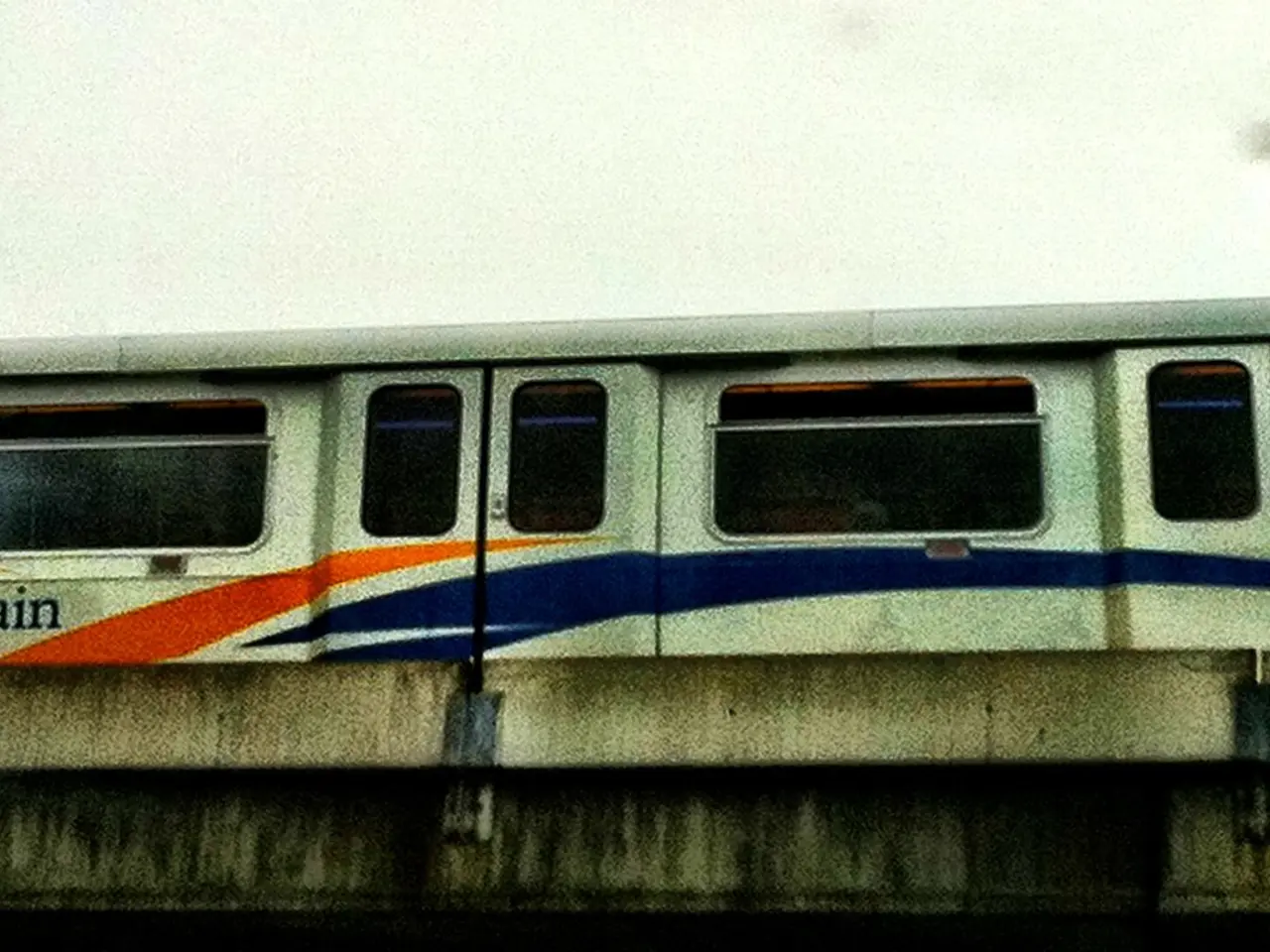Long-distance rail services face potential withdrawal due to exorbitant track usage charges, according to the railways chief. - Railroad tariffs posing risk to goods distribution in extensive freight shipping
The German railway industry is currently embroiled in a contentious debate over proposed significant increases in track access charges, with concerns particularly focused on the impact on long-distance rail traffic and operators like Deutsche Bahn.
According to plans, there is set to be a 17.7% increase in track access charges next year, a figure that is seen as substantial compared to access charges in other countries. This increase has been met with apprehension by industry leaders, such as Richard Lutz, CEO of Deutsche Bahn, who has expressed concern over the impact on railway companies.
Martin Burkert, chairman of the railway and transport union (EVG) and vice-chairman of the supervisory board of the railway, has also voiced his concerns, warning of rising track prices. In fact, increases of more than 20 percent have been announced for track prices.
Recognizing the need for action, Lutz and Burkert have both stressed the necessity of a structural reform of the track price system. This is in line with the coalition agreement, which promises a reform aimed at limiting the equity capital interest as one of the factors influencing track prices.
The Federal Network Agency, the authority responsible for deciding on track prices, is currently considering an increase of 23.5 percent for regional traffic, 10.1 percent for long-distance traffic, and 14.8 percent for freight traffic in 2026. However, a decision on the track prices for next year is still pending, as the Federal Network Agency awaits a procedure before the European Court of Justice on the legality of limiting track price increases for regional traffic.
In the meantime, the parliamentary procedure for the budget in the fiscal years 2025 and 2026 is expected to address the remaining funding gaps. The funding requirement for all companies in freight traffic this year is approximately 350 million euros.
Lutz has stated that without higher political promotion, there is a risk of a reduction in the long-distance traffic of the state-owned company. Burkert, on the other hand, has urged the Bundestag to stop the price increases and ease the rail toll through targeted promotion.
The reform of the track price system, including the limitation of equity capital interest, is part of the coalition agreement and applies to Deutsche Bahn and its competitors in the railway industry. This reform is seen as crucial in maintaining the economic viability of all companies in market-driven and competitive railway markets.
As the debate continues, it is clear that a balanced approach is needed to ensure the sustainability of the railway industry while addressing the concerns of both the industry leaders and the public. The outcome of the European Court of Justice's procedure and the forthcoming parliamentary budget decisions will play a significant role in shaping the future of Germany's railways.
In light of the concerns expressed by Richard Lutz, CEO of Deutsche Bahn, and Martin Burkert, chairman of the railway and transport union (EVG), vocational training programs could be a means to foster business growth within the railway industry, providing new skills to railway employees and aiding in the financial sustainability of companies. Regardless, the parliamentary procedure for the budget in the fiscal years 2025 and 2026 is expected to address the funding gaps, thereby playing a significant role in the future of Germany's railways, ensuring a balanced approach between industry needs and the public interest.




